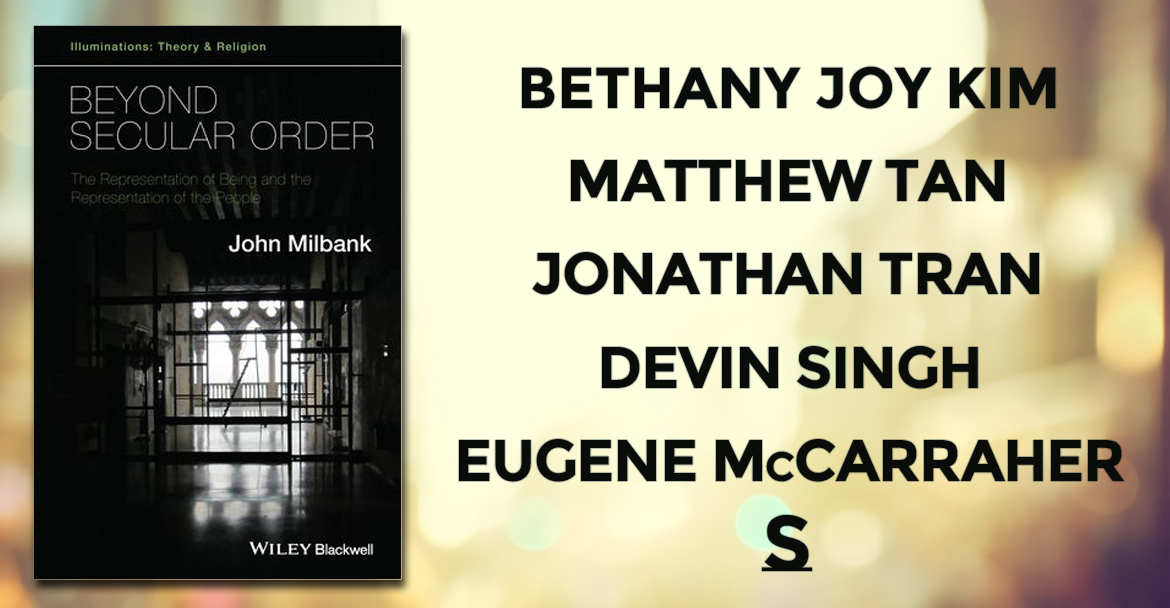While Christmas and New Year celebrations went on over the last two weeks, the folk at Syndicate Theology (mentioned in a post in 2014 – Happy New Year, by the way) were hard at work in putting together a symposium around John Milbank’s follow up to his highly anticipated and equally controversial Theology & Social Theory.
This symposium on Beyond Secular Order was edited by Dr. Justin Tse of the University of Washington, who blogs at Religion. Ethnicity. Wired. The symposium provided four response essays, each of which was followed by a counter-response by John Milbank and an accompanying discussion. This symposium received the largest response by any of the books reviewed on Syndicate Theology since its inception in 2015.
Contributors to this symposium included:
- Justin Tse‘s editorial introduction
- Bethany Joy Kim of the Society of Vineyard Scholars, who looked at Milbank’s take on the concept of Homo Faber from a charismatic perspective
- Matthew Tan of Campion College Australia (and The Divine Wedgie), who examined the metaphysics of simulation and its effects on politics and pop culture
- Jonathan Tran of Baylor University, who provided a hopeful yet critical perspective on the viability of Milbank’s larger project of Radical Orthodoxy.
- Devin Singh of Dartmouth College, which critiqued from a postcolonial standpoint, the seeming over-romanticised and Euro-centric thesis of Milbank and
- Eugene McCarraher, arguably the most pointed of Milbank’s critics, which builds upon Singh’s critiques and critiques what has been labelled a “Dominion Theology”, articulating many critics’ fears of theocratic goverenance arguably put forward by Milbank’s overall project, a charge which Milbank denies in a lengthy response.
Syndicate Theology have also rung in the new year with a new symposium on American Apocalypse: A Historical Of Modern Evangelicalism by Matthew Avery Sutton.
















